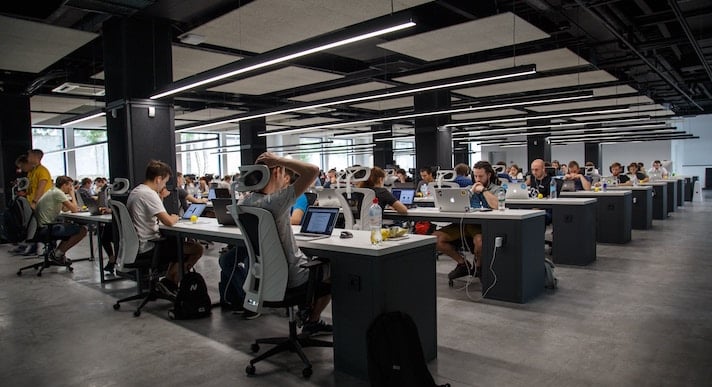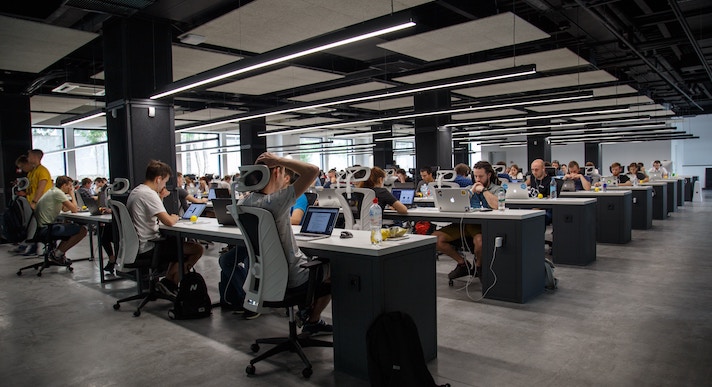
High levels of productivity cause huge personal welfare issues amongst all staff, which then overspill into family, social and health issues. Similarly, low levels of productivity damage the rate at which an economy grows and after the economic lag has been accounted for produces low wage increases, a lowering of disposable income, lower spending power and ultimately a complete downturn in the economy which may lead to a recession.
Will Stronge, the co-founder of the think-tank Autonomy, which has published a report advocating a shorter working week, said it was not surprising that the issues in China were in the tech sector. US firms also promote cultures of longer working hours. City banks and law firms have similar issues. “This is part of the ideology and the dominant narrative that entrepreneurialism and long working hours come hand in hand. It’s sometimes presented as a carrot by a boss for workers as ‘This is how I got here’,” Stronge said.
I would certainly argue that this mind-set simply does not stack up against any measure you may wish to apply to it. It is a morally and socially corrupt model and way of thinking about your staff and workforce. Economic history contains numerous examples of where it doesn’t make business sense to work workers to the bone.
Our poor record at increasing productivity following the financial crisis a decade ago has cost workers as much as £5,000 in missing income, according to official estimates. The Office for National Statistics (ONS) stated that the failure to maintain productivity growth – a key measure of economic output per hour of work – was one of the main reasons for a lost decade of pay growth for British workers. When companies are able to do more with less, they can increase salaries.
UK productivity grows by just 0.5% in 2018 amid Brexit uncertainty. Labour productivity slumped by 0.2% in the first three months of 2019 compared to the same period a year ago, the third consecutive quarterly drop, continuing a trend over the past 10 years for sub-standard efficiency gains. The drop was marginally greater than the 0.1% slide recorded in the fourth quarter. Before the financial crisis, productivity was growing at 2.3% per year. If productivity had continued growth in line with its long-term trend, and wages as a share of the UK’s economic output had remained constant, average private-sector wages would be just over £5,000 higher in 2018 for the average worker, the ONS said.
These findings come amid rising concerns over the dampening impact of Brexit uncertainty on Britain’s productivity growth, as organisations put efficiency-boosting investments on hold amid the political uncertainty possibly leading to financial market turmoil.
Tej Parikh, the chief economist at the Institute of Directors, said: “With political risks clouding business decisions, firms have lacked the confidence to invest in the equipment and technology that drive efficiency gains in their organisations”. “Even if the clouds of uncertainty do lift later…... it will be a while before pent-up investment activity filters through to the productivity numbers.”
Should the UK crash out and immediately ditch the benefits of being a member of the EU, the economic shock will reverberate for a significant amount of time, thus halting all potential productivity growth across the economy as we all deal with the huge ripples this will cause.
In these cases, most organisation break out the ‘use only in emergency’ leadership and management toolkit, to try and use both offensive and defensive strategies to protect their interests.
The government has made boosting productivity a key target through its industrial strategy, which is meant to provide support for businesses through state funding and spending on infrastructure. Howard Archer, the chief economic advisor to the EY Item Club, said low wage growth had undoubtedly tempted firms to hire more staff rather than invest in technology over the past decade. However, the UK’s low productivity problem has been exacerbated by the proliferation of low-skilled and low-paid jobs post the financial crisis. The rise of the ‘Gig’ economy does not support productivity growth at all and neither does the proliferation of zero-hours contracts. “It is also apparent that many companies have taken on labour rather than committing to a costly investment, given the highly uncertain economic and political outlook,” Archer said.
While unemployment has dropped to the lowest levels since the mid-1970s, average pay remains below the financial crisis 2008/09 peak, after inflation is taken into account, which effectively zero’s out any pay rises that may have occurred.
The government's absolute failure to boost productivity in some parts of Britain has been highlighted among a range of factors behind the Brexit vote, with some northern English towns among the least productive places in Europe. Parts of London have the highest productivity rates in Europe and voted to ‘Remain’. Productivity varied significantly across the regions, with London as much as 30.4% above the UK average, while Wales was 16.3% below the rest of the country.
It has only of late been recognised that many coastal communities around the UK now face rates of social and economic exclusion and deprivation, higher than those that existed during the late 1980s and early 1990s when inland regions were dealing with the stresses of changes to the industrial strategy with the closure of deep mines and other associated industries etc.
According to the Resolution Foundation, UK productivity is now 28% below its pre-2008 crisis trend. Jack Leslie, the foundation’s policy analyst, said the slump was unprecedented. “Addressing the UK’s productivity slump is as important, and not unrelated to, addressing Brexit,” he said. “Companies are instead taking a more cautious option, choosing to hire workers instead. When the economy is pretty moribund, we are going to get weaker output growth, much higher employment.”
The ONS said the UK’s financial services industry, and the sector that includes mining, electricity and gas production, water supply and agriculture, accounted for the bulk of the drop in the fourth quarter.
Britain has maintained its dismal productivity record, with the rise in worker efficiency in 2018 only a quarter of the level seen before the financial crisis a decade ago. Amid fears Brexit uncertainty is set to further damage productivity growth, holding back improvements in living standards, the Office for National Statistics said labour productivity grew by only 0.5% last year compared to 2017. To put this in a context, the measure of economic output per hour of work previously rose by about 2% a year, on average, before the 2008 financial crisis. In a damning indication of the weakness of the UK economy, the ONS said it had taken a decade to deliver as much productivity growth as was previously achievable in a single year.
So what does all of this really mean to us all?
Productivity is considered an important driver of improved living standards over the long term, enabling companies to pay higher wages as they are able to deliver higher revenues with the same or fewer resources. Living standards increase through the wealth and wellbeing of the nation and affect individuals, families, communities, towns and districts. As a direct consequence of this the amount we then provide as public sector services is less as communities, towns and districts, become healthier and more self-supporting through community groups and volunteering.
Obviously the opposite is too often the case, where we see increases in obesity, health-related issues, mental health issues and life expectancy begins to decrease. A significant absolute measure to be concerned about as a nation is the number of children living in poverty. There has been a rise in this number of the past few counting periods. This is of huge concern, as the effect of this on the individuals and families concerned is lifelong and debilitating, not only to them but the communities they live in.
Through this, any government in power at that point in time will have less to spend to support this issue, unless it breaks its own fiscal rules and borrows the money to be paid back later.
In conclusion
Advanced economies around the world are suffering from weaker levels of productivity growth, but our poor performance is particularly pronounced.
Economists debate the reasons behind the so-called “productivity puzzle”. Some believe gains from new digital technologies are not being captured by the figures, while others argue that a decade of government austerity and lacklustre levels of business investment are taking their toll.
Richard Heys, the ONS’s deputy chief economist, said: “Our latest figures show a continuation of a decade of weak growth, often referred to as the ‘productivity puzzle’, with labour productivity growth lower over the last decade than at any time in the 20th century.”
Regardless. The ‘puzzle’ is certainly not good news for any of us and will have a long term and uncertain effect on how we live well and prosper in the future.
About Ascento
Ascento learning and development specialise in providing workforce development apprenticeship programmes to both apprenticeship levy paying employers and non levy employers. We work closely with employers to identify the key areas for development and design strategic solutions to tackle these with programmes that are tailored to each individual learner. With two schools of excellence focusing on Management and Digital Marketing we don’t deliver every qualification under the sun, but focus on what we know best and ensure that quality is at the heart of everything we do.








